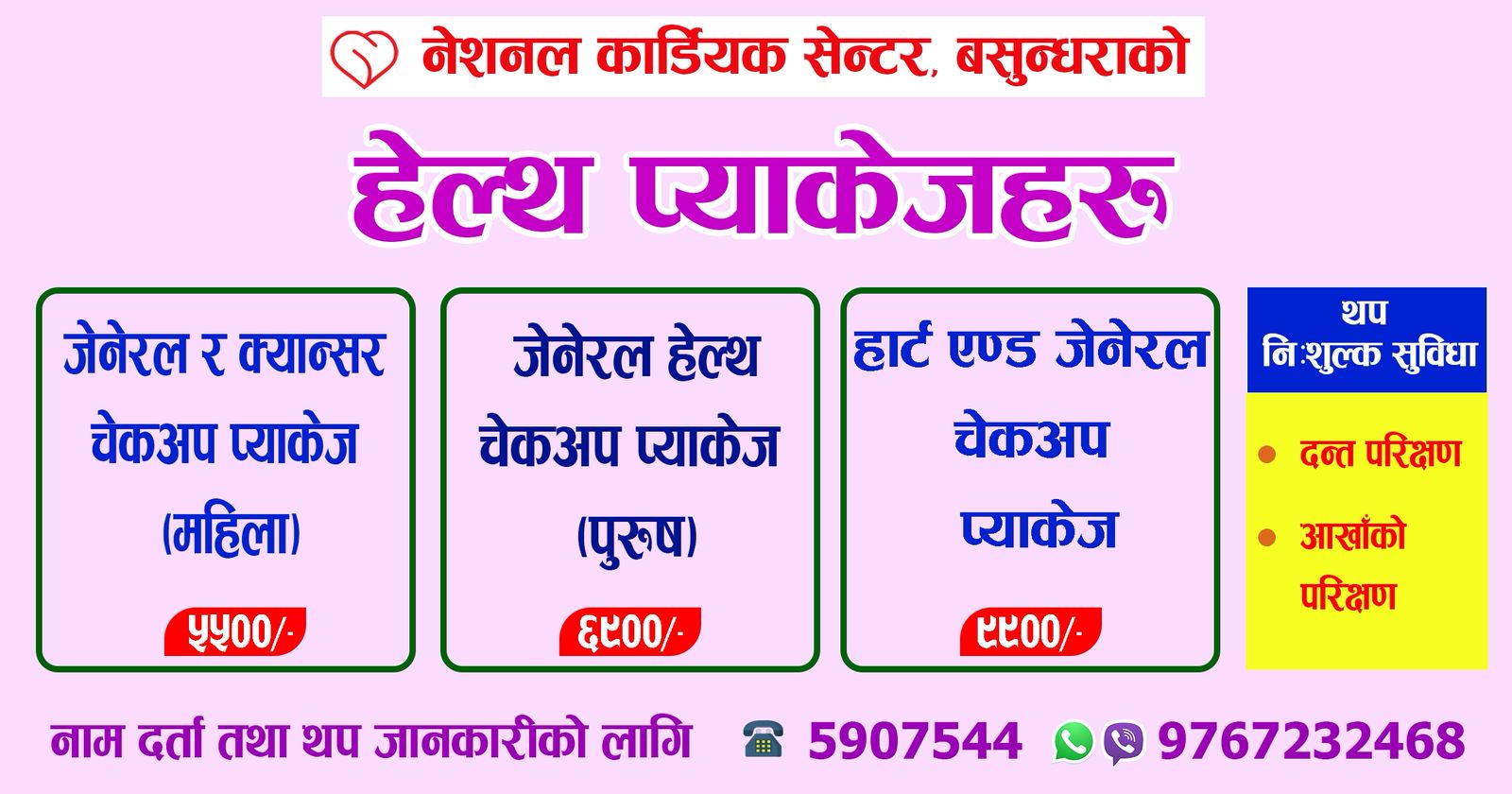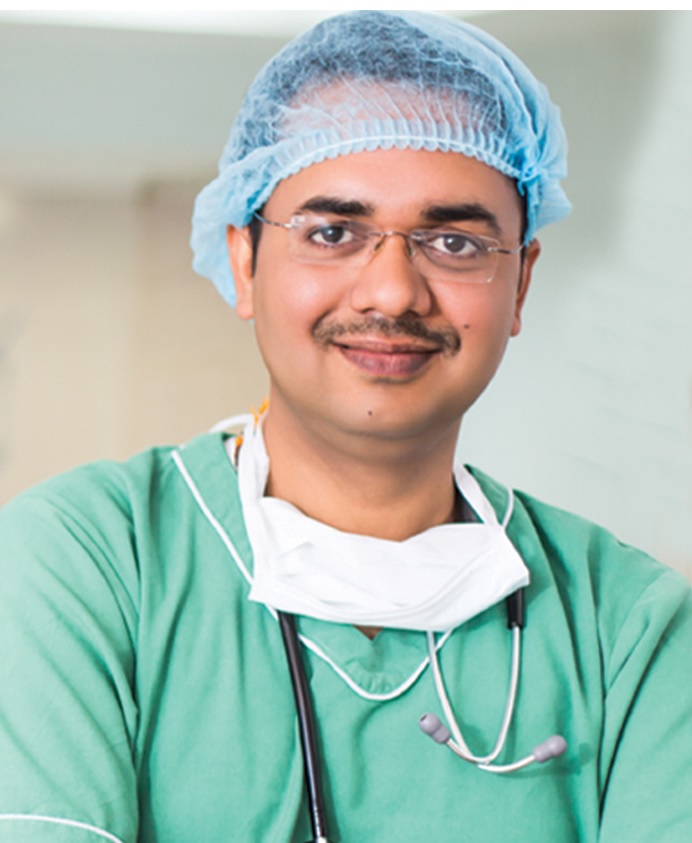

Dr. Om Murti Anil, National Cardiac Centre, Senior Cardiologist
Click here to download mobile App
WHO SAVES A PATIENT’S LIFE?
An angiogram I conducted on a 55-year-old male from Rautahat showed that he had 95 percent blockage in his left coronary artery. Disease in this artery, which supplies blood to the heart, is considered lethal. He was referred for a bypass surgery, but could not afford the two lakhs required for this purpose. He had been experiencing recurrent rest angina (chest pain due to blockage) in the past two days. He met me in OPD and said that he only had Rs 1,100. Being an interventional cardiologist, I easily understood the gravity of situation. Rest angina in this case has only two remedies: either open up the obstructed artery, or accept death.
Like many developing countries, the government of Nepal does not have rules requiring government or non-government hospitals to provide treatment free of cost in emergency settings to save the life of poor patients. I think when a patient reaches any hospital, the hospital should save his life, even if he doesn’t have a single paisa. It is a basic human right and the responsibility of a nation towards its citizens. In our hospital, like in other hospitals, we did not have the facility of providing this patient a life saving procedure (CABG or Angioplasty) free of cost. Either treatment costs more than Rs two lakhs in Nepal. With all these things in mind, that patient was admitted and put on medical management, which could do little for his deadly disease. We were mentally prepared to tackle any mishap during his admission.
डा. ओम मूर्ति अनिलका भिडियो र लेखहरु हेर्न यहाँ लिंकमा वा माथिको फोटो क्लिक गर्नुस ।
When I was doing my DM cardiology in AIIMS, I used to imagine that one day I would do something in my country to save the lives of these kinds of patients. But when I got the opportunity, the situation was not favorable for me to accomplish it. After this patient’s admission, I took care of him. I arranged for a free stent (used during angioplasty to keep the artery open) for him the day he was admitted. I had made plans to save his life if his condition deteriorated. Despite continuous medical management, one morning he suddenly collapsed. He was resuscitated successfully due to the timely action of on-duty DM resident doctor. He then started having continuous chest pain, and ECG done immediately showed features of a massive heart attack.
I took him immediately to cath lab. His condition was very poor, his blood pressure had dropped to 30 mmHg. Angioplasty (opening of obstructed artery by wire and balloon, and putting a stent through an artery connected to heart) of his diseased vessel was done. His left main coronary artery was blocked almost completely, with only a string-like flow of blood through it. The whole procedure of Angioplasty took less than 20 minutes, immediately after which his BP rose to 130 mmHg. We achieved excellent angioplasty result thanks to whole cath lab team, and the patient was shifted back to coronary care unit (CCU).
During his transfer he thanked the cath lab team, and told us that we had saved his life. He was happy that he had survived, and was laughing as he was being shifted. We too were delighted. And why not, for we had performed a procedure considered challenging for interventional cardiologists in any part of the world. Only 50 percent of such patients survive, even with timely angioplasty. In our context, it was no less than a miracle. For a doctor, and everybody involved in patient care, there is nothing more satisfying than saving the life of an ailing patient. It was quite natural for us to be excited about that event. This procedure not only saved his life, but also made a bypass surgery unnecessary.
After the procedure, I went to OPD and finished my cases, and went home intending to have lunch. Even at 4 pm, I could not eat all of my lunch because of my excitement, and instead went back to CCU to see the patient. At home during lunch, I had talked to my parents, wife, and nephew about the day’s progress (I had already discussed his case with them). They were very happy for two reasons. One, because I had saved a life, and two, because I was happy. I always talk to them about my work at the hospital, and they pray and wish for my success every day, particularly when I have some challenging cases at hand.
When I met the patient in CCU after my lunch, he said to me in Maithili “Aanha hamar bhagawan chhi, Hamar jaan bacha deli” (“You are my God, you have saved my life”). That statement brought a pleasant smile to my face as usual, though it was nothing new. Doctors often get to hear these two lines together. Such words always encourage us to continue our good work.
But in reality, every doctor knows who they are. They are like any other people. They know very well that they are human beings and not gods, but they still enjoy being called a God. Why? I don’t know, and I wondered if any doctor knew. In my opinion, only one philosophy can explain this. According to the Geeta, the Aatma (soul) of every living creature is immortal. And Aatma (Soul) merges with Paramatma (the supreme being) after death.
That means Aatma is a part of Paramatma who lives in every creature created by God. In every living creature, there lives a part of the Supreme Lord. After Angioplasty, the patient had a normal recovery and was discharged four days later in a very stable condition. We gave him free medicines to last three months to make sure that he wouldn’t stop taking the medicines even if he couldn’t afford them, since stopping medicine in patients with stent can have disastrous consequences. Our hospital (Manmohan Cardiothoracic Vascular and Transplant Centre, Kathmandu) provided a bed as well as the procedure of angioplasty free of charge, and also contributed to patient care. The staffs at this institution are excited to tackle more such challenging cases in future.
But still, a question continues to haunt me. Who saved his life? Me, the cath lab team, or my hospital? My father used to recount to me an incident from Mahabharata: once, Lord Krishna said to Arjuna “Ishwarah sarva bhutanam hridasya arjuna tisthati bhranyan sarva bhutani yantra rurhani mayayaa (“The Lord resides in every living and nonliving creature, and makes it work like a machine).” My mother (who sat near me as I wrote this piece) didn’t understand much of what my father said, but I know she understands my emotions.
Being a Hindu, I have full faith in the God and Geeta, and am convinced of the truth of this statement. I thought again and again, and finally realized that it is neither me, nor my team, that saved his life. It is God who makes it possible. He inspires within us the motivation to accomplish it. He arranges everything, to save the life of his creatures. We just perform our duties. Doctors who are lucky to have the blessings of God get many such opportunities. I guess I was one of the lucky ones. I pray to the almighty to continue to bless me, and grant me more opportunities to bring smiles to the faces of diseased, suffering, and poor patients.